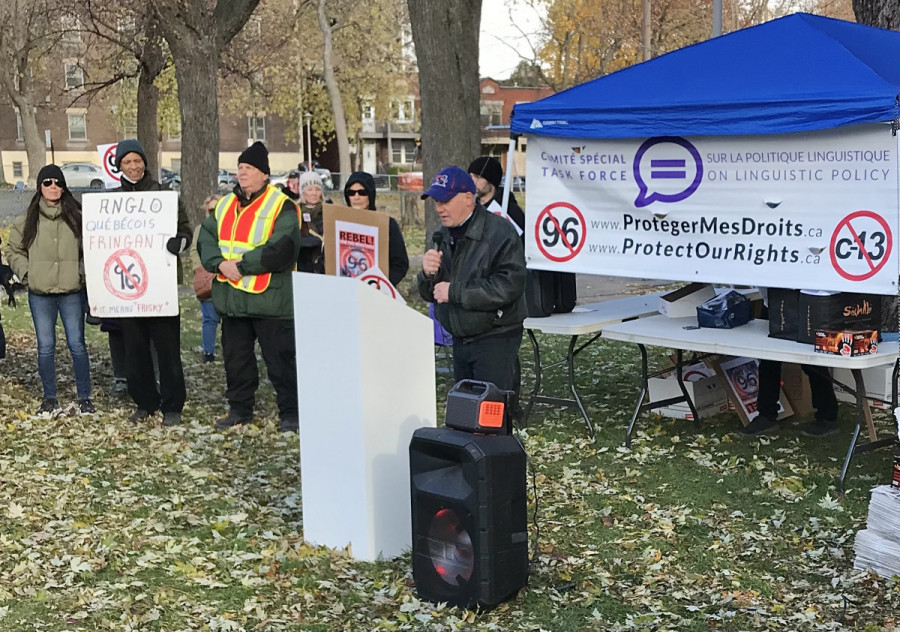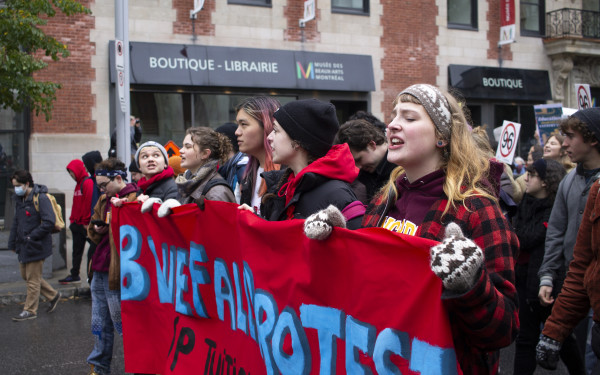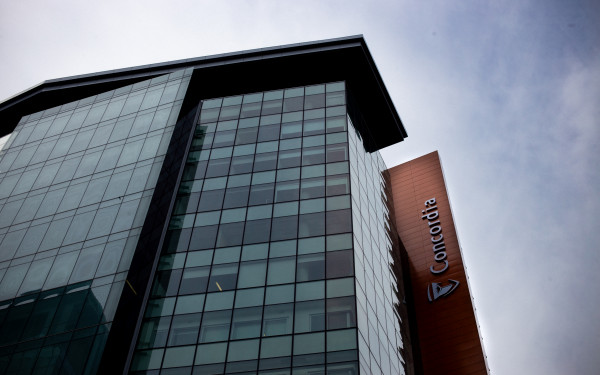Anglophone Montrealers rally against Bill 96
Outrage over language law continues
On the afternoon of Nov. 19, 300 people assembled in Trenholme Park in Notre-Dame-de-Grâce to protest Bill 96. The protest was organized by the Task Force on Linguistic Policy, which launched a lawsuit against said bill in May.
“Today we are obliged to take the Quebec government to court to ensure our constitutional rights are protected,” said Marc Perez, a member of the Task Force’s board of directors. Task Force secretary-treasurer Dale Weber, meanwhile, described Bill 96 as both “illegal” and “mean-spirited.”
The Task Force, which does not receive financial assistance from the government, is funding its lawsuit through individual donations.
In addition to other changes, Bill 96 further restricts access to English services in Quebec, increases French-language instruction in English CEGEPs, and imposes francization requirements on businesses with 25 to 49 employees. The bill was implemented by Minister François Legault’s government in May 2022 ostensibly to protect French throughout the province.
“What we see also is that the percentage of people, especially on the island of Montreal, speaking French is decreasing. So, French will always be vulnerable in North America,” Legault said in September.
“French is not in decline in Quebec, no matter what the Premier may say,” said Geoffrey Chambers, the former president of the Quebec Community Groups Network, while addressing the crowd at Sunday’s rally. “The story of French in Quebec is a massive victory, a success. And we fully support and applaud that fact. This new piece of legislation does not protect the French language; it attacks the English-speaking community.”
Likewise, protesters Danielle Carter, Irwin Rapoport and Sharon Schmerer rejected the argument that French is in danger.
“I think there are 1,000 or 2,000, at most, fluent Mohawk speakers. That’s a language that’s in danger,” said Rapoport. “There are about 6.9 million French speakers in Quebec. The language is not in danger. They’ve got thriving media and entertainment and publishing.”
According to Statistics Canada, 237,420 Indigenous people in Canada reported in 2021 that they could speak an Indigenous language well-enough to conduct a conversation. This constituted a 4.3 per cent decline from 2016, and the first decline since this specific data collection started in 1991.
Schmerer said: “The first language anywhere in the world is English. What’s wrong with two languages?”
Both Chambers and Carter said that the Quebec government is trying to get rid of Quebec’s anglophones. “[Bill 96] has a devastating effect on the education system,” Carter said.
“People are losing their jobs because they don’t speak French. Already we know that anglophone Quebecers are the poorest demographic in Quebec,” Weber said.
A recent study conducted by the Provincial Employment Roundtable (PERT) found that the provincial poverty rate for anglophone Quebecers (10 per cent) is almost twice as high as it is for francophone Quebecers (5.8 per cent). PERT also said that anglophone Quebecers are more likely than their francophone counterparts to be unemployed.
Whilst Perez predicted that Bill 96 will eventually be overturned, Rapoport also expressed optimism, predicting that most of the legal challenges against the law will succeed.
Concordia student Robert Toto described the fight against Bill 96 as “a long uphill battle.” “I think the best thing to do is just continue fighting and keep going at it and simply not give up,” he said.
The rally, which drew a small police presence, occurred between 12 p.m. and 2 p.m. amidst cold weather. Cars that drove by honked in support of the protesters, many of whom were holding anti-Bill 96 signs.
The Task Force organized a car procession that started at the Walmart on Decarie Boulevard before the rally and ended at Trenholme Park.
Task Force president Andrew Caddell said that more anti-Bill 96 demonstrations will be held.







